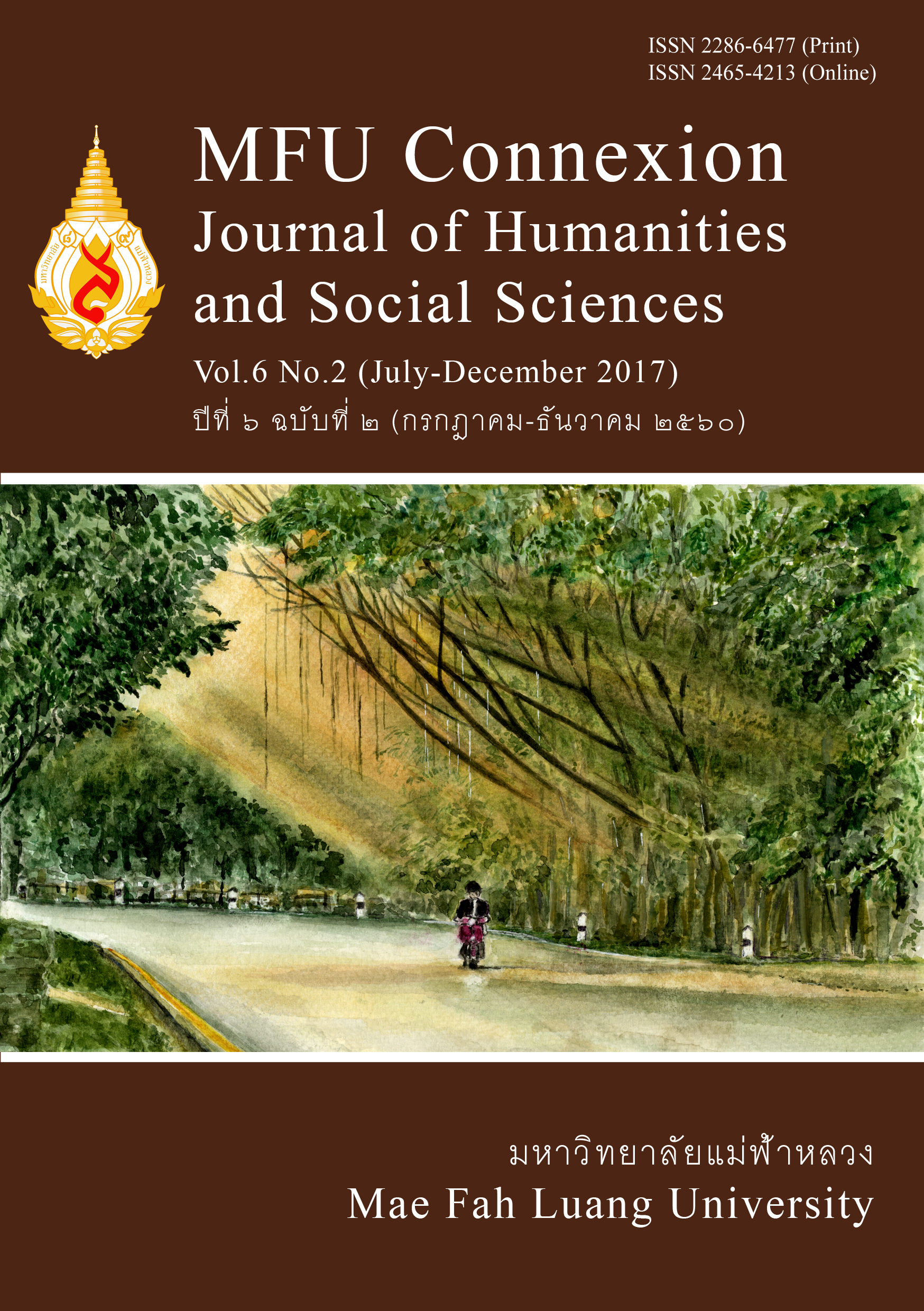Economic and Social Impacts from the Free Trade Agreement between Thailand and its Main Exporting Partners in Potential Commodities (in Thai)
Main Article Content
Abstract
The purpose of this study is to investigate the impacts of FTA between Thailand and the main exporting countries including China, the United States of America, Japan, Malaysia, and Hong Kong which mainly highlights the impacts on macroeconomic variables, sectoral production, social welfare, poverty, and income inequality. Research methodologies are the descriptive analysis, Revealed Competitive Advantage (RCA) Index, and Computable General Equilibrium (CGE) model.
The results, according to the results from CGE model, reveal that Thailand will enjoy an economic growth measured by an increase of Gross Domestic Product (GDP) between 0.23-0.95 percent if Thailand signs FTA with the main exporting countries stressing on liberalizing the comparative commodity products which the positive results from this strategy are greater than from full liberalization in all commodities. Additionally, the results suggest that FTA can help reducing poverty as household income has increased but the income distribution will worsen because the return to capital owner whose income is relatively high is greater than to labor whose income is relatively low. Thus, government and trade negotiators should elaborately concern about the impacts on social welfare from future FTAs.
Article Details
Copyright
Connexion: Journal of Humanities and Social Sciences has an exclusive right to publish the accepted articles in any form. However, the author retains the following rights:
1. The right to the ownership of the article;
2. The right to use all or part of the article in his/her other works;
3. The right to re-produce the article for personal use or for use in the author’s organisation, in which case the author must obtain permission from Connexion: Journal of Humanities and Social Sciences;
4. The right to make copies of all or part of the work for educational use or for the author’s use in classroom teaching; and
5. The right to include the work (both the preprinted and printed versions) in an institutional repository.
References
Anwer, M. S. & Sampath, R. K. (1997) Exports and economic growth, Paper presented at Western Agricultural Economics Association 1997 Annual Meeting, Nevada.
Ariyasajjakorn, D., et al. (2009) ASEAN FTA, distribution of income, and globalization, Asian Economic Integration in a Global Context, vol. 20, no. 3, pp. 327-335.
Chaipan, C., et al. (2007) Regional economic integration and its impacts on growth, poverty and income distribution: The case of Thailand, NIDA Development Journal, vol. 40, no. 4, pp. 99-133.
Department of Trade Negotiations. (2009) Thailand’s trade negotiations trend between 2009-2013, Available: https://www.thaifta.com [10 Oct 2016]
Department of Trade Negotiations. (2016) Conclusion of Thailand's free trade agreement, Available: https://www.dtn.go.th/index.php [10 Oct 2016]
Emery, R. F. (1967) The relation of exports and economic growth, Kyklos, vol. 20, pp. 470-486.
Hayami, Y. (2001) Development economics, Oxford: Oxford University Press.
Hesse, H. (2008) Export diversification and economic growth, Washington, DC: Commission on Growth and Development.
Hutcheson, T. (2006) HS2002-CPC 1.1-ISIC: Rev3-GTAP concordance, Available: https://www.gtap.agecon.purdue.edu/resources/res_display.asp?RecordID=1916 [25 Sep 2016]
Krueger, A. O. (1998) Why trade liberalisation is good for growth, The Economic Journal, vol. 108, pp. 1513-1522.
Lee, C. H. & Huang, B. N. (2002) The relationship between exports and economic growth in East Asian countries: A multivariate threshold autoregressive approach, Journal of Economic Development, vol. 27, pp. 45-68.
Lin, J. Y., & Li, Y. (2002) Export and economic growth in China: A demand-oriented analysis, Peking: China Center for Economic Research, Peking University.
Ministry of Commerce. (2014) Statistics of international trade, Available: https://www2.ops3.moc.go.th [15 Oct 2016]
NESDB. (2013) Thailand's gross domestic product, Available: https://www.nesdb.go.th [10 Oct 2016]
NESDB. (2017) Economic and social statistics, Available: https://www.nesdb.go.th [29 Mar 2017]
Palley, T. I. (2011) The rise and fall of export-led growth, New York: Levy Economics Institute.
Rodriquez, F. & Rodrik, D. (2001) Trade policy and economic growth: A skeptic's guide to the cross-national evidence, Cambridge, MA: The MIT Press.
Stiglitz, J. E. (1998) Towards a new paradigm for development: Strategies, policies, and processes, Paper given as the 1998 Prebisch Lecture at UNCTAD, Geneva.
World Bank. (2013) The 2013 world development report, Washington, DC: World Bank.
World Bank. (2014) Regional trade agreements, Available: https://www.wto.org/english/tratop_e/region_e/region_e.htm [15 Sep 2016]


